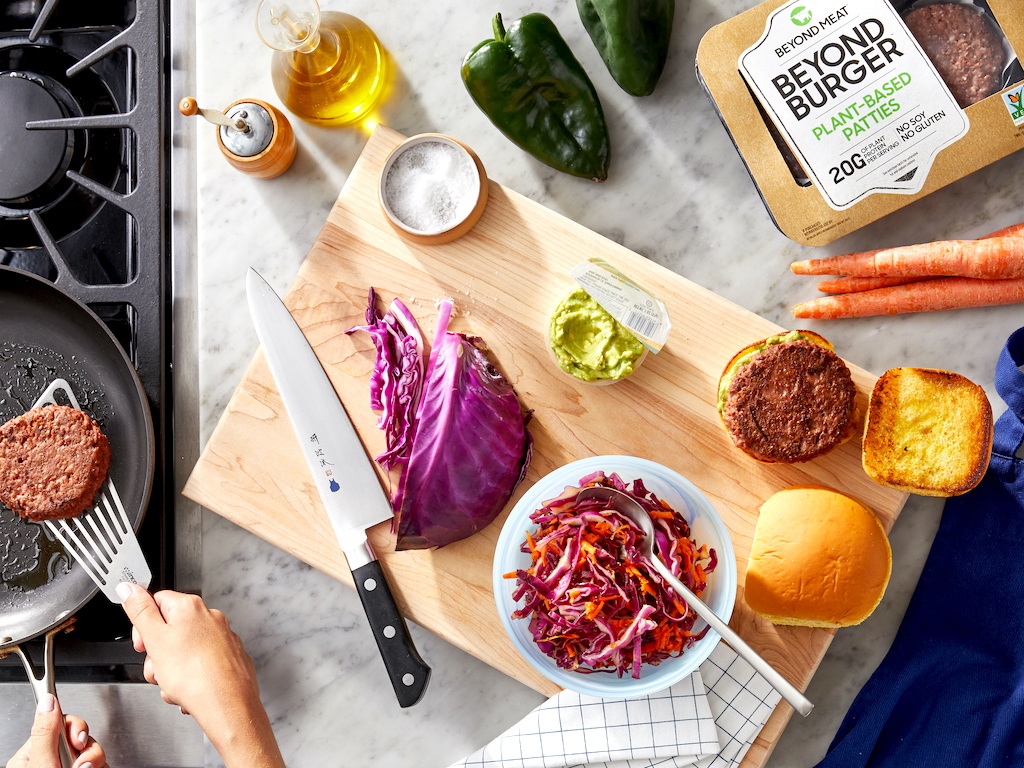Epicurious Says Goodbye To Beef Recipes To Encourage Sustainable Cooking & Evolve With The (Plant-Based) Times
4 Mins Read
Epicurious, one of the largest food and cooking digital platforms in the world, has bid farewell to beef recipes. The Condé Nast subsidiary says it has taken the decision to stop publishing beef-related recipes across its website, articles, newsletters and even social media page in order to become “pro-planet” and “encourage more sustainable cooking”.
Epicurious announced on Monday (April 26) that from now on, it will no longer be posting any beef recipes across its entire platform, from its homepage to its Instagram feed. The platform, which was created by Condé Nast in 1995 and has since spiralled into a global phenomenon famous for being home to the Bon Appétit brand, cited the enormous carbon footprint of beef as its reason for cutting out the ingredient and promoting alternative protein sources instead.
“We’ve cut out beef. Beef won’t appear in new Epicurious recipes, articles, or newsletters. It will not show up on our homepage. It will be absent from our Instagram feed,” wrote digital director David Tamarkin and senior editor Maggie Hoffman, in an article explaining the decision.
Of all the animal-based protein sources, beef is the most carbon-intensive and accounts for an enormous portion of the greenhouse gas emissions from the livestock industry. Beef production alone drives as much as 61% of the emissions coming from animal agriculture, which altogether makes up nearly one-fifth of the world’s total footprint – more than all transportation combined.
It might not feel like much, but cutting out just a single ingredient—beef—can have an outsize impact on making a person’s cooking more environmentally friendly.
“Cows are 20 times less efficient to raise than beans and roughly three times less efficient than poultry and pork,” cited Tamarkin and Hoffman. “It might not feel like much, but cutting out just a single ingredient—beef—can have an outsize impact on making a person’s cooking more environmentally friendly.”

The only change is that we now believe that part of getting better means cooking with the planet in mind. If we don’t, we’ll end up with no planet at all.
Fending off potential naysayers, Epicurious described the move as “not anti-beef but rather pro-planet”, and comes at a time when it’s more important than ever before to consider the footprint of our plates.
Beef consumption in the U.S. has been steadily growing in recent years, despite experts and scientists reiterating that our current trends will mean that emissions from food and agriculture alone will use up the world’s entire carbon budget in just decades time.
Even if we eliminated all fossil fuels and switched to renewable energy, it wouldn’t be enough to keep our carbon footprint down to meet the Paris agreement goals.
“The conversation about sustainable cooking clearly needs to be louder; this policy is our contribution to that conversation,” the platform explained.
“Individual actions like choosing alt-meat — or mushrooms, or chickpeas — instead of the real thing can feel so small they’re essentially pointless. But every time you abstain from beef at the grocery store or a restaurant, you send a signal.”

But every time you abstain from beef at the grocery store or a restaurant, you send a signal.
Indeed, Epicurious is sending a much-needed message and its reach is likely to translate to considerable impact with its new beef-free policy. The platform boasts a unique digital readership of 8.4 million users and 8.5 million social media followers.
Together, Epicurious readers make up a US$53 billion market when it comes to their food and restaurant spending, according to Condé Nast statistics, and as many as 6.5 million of their regular followers cook frequently during the week. If just a portion of them decide to ditch beef, or even go meatless part-time, we could be looking at significant carbon savings.
And the science is there to back it up, with a food footprint report by Oslo-based nonprofit EAT finding that these savings won’t even require consumers to go entirely vegan. According to the study, if the richest economies in the world switched to a flexitarian diet, as much as 40% of the total global carbon budget for food could be freed up.
“Epi’s agenda is the same as it has always been: to inspire home cooks to be better, smarter, and happier in the kitchen,” wrote Tamarkin and Hoffman.
“The only change is that we now believe that part of getting better means cooking with the planet in mind. If we don’t, we’ll end up with no planet at all.”
Lead image courtesy of Beyond Meat / Blue Apron.




